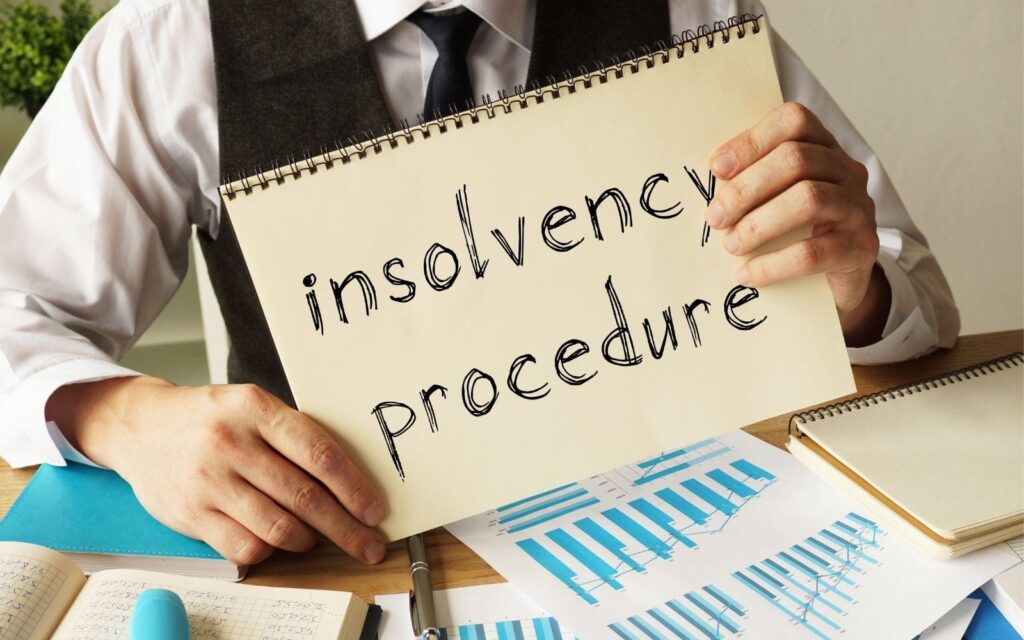
Resolving Financial Distress: The Comprehensive Support of Insolvency Lawyers
Financial distress can be a challenging and overwhelming experience for individuals and businesses alike. When faced with mounting debts, legal obligations, and the fear of bankruptcy, it is crucial to seek expert guidance to navigate through these complex issues. This is where insolvency lawyers play a vital role. With their in-depth knowledge and experience in handling financial distress cases, insolvency lawyers provide comprehensive support to those in need.
Understanding Financial Distress
Before delving into the role of insolvency lawyers Sydney, it is essential to understand what financial distress entails. Financial distress refers to the state in which an individual or a business is unable to meet their financial obligations and debts. It can be attributed to various factors, ranging from poor financial management to unforeseen circumstances such as economic downturns or unexpected expenses.
The Causes of Financial Distress
Financial distress can arise due to multiple reasons. Mismanagement of finances, excessive borrowing, lack of budgeting, and poor investment decisions are common causes for individuals. Similarly, businesses may face financial distress due to decreased sales, excessive debt burden, legal disputes, or industry-specific challenges. Understanding the root causes is crucial to devise effective strategies for resolving financial distress.

The Impact of Financial Distress on Individuals and Businesses
The impacts of financial distress can be wide-ranging and severe. For individuals, it can lead to a deteriorating credit score, wage garnishment, repossession of assets, eviction, and even personal bankruptcy. In the case of businesses, financial distress can result in the loss of customers, inability to pay suppliers, legal actions from creditors, and ultimately, closure.
Let’s take a closer look at the impact of financial distress on individuals. When faced with financial difficulties, individuals may experience a significant decline in their quality of life. They may struggle to pay their bills, leading to overdue payments and accumulating debt. This can have a domino effect, as late payments can result in higher interest rates and fees, further exacerbating the financial burden.
Furthermore, financial distress can take a toll on individuals’ mental and emotional well-being. The constant stress and anxiety associated with financial struggles can lead to sleepless nights, strained relationships, and a decreased ability to focus on work or other important aspects of life. It can feel like an overwhelming and never-ending cycle, causing feelings of hopelessness and despair.
Turning our attention to businesses, financial distress can have far-reaching consequences. A company facing financial difficulties may find it challenging to attract new customers or retain existing ones. This can be due to a loss of trust and confidence in the business’s ability to deliver products or services. As a result, sales may decline, further exacerbating the financial strain.
In addition to losing customers, businesses in financial distress may struggle to meet their financial obligations to suppliers. This can lead to strained relationships, delayed deliveries, and even legal actions from creditors seeking to recover their debts. The inability to pay suppliers can disrupt the supply chain, impacting the business’s ability to operate smoothly and meet customer demands.
Ultimately, if financial distress persists and effective measures are not taken to address the underlying issues, both individuals and businesses may face the harsh reality of closure. For individuals, this can mean losing their home, their possessions, and their financial stability. For businesses, closure can result in job losses, the displacement of employees, and the loss of a once-thriving enterprise.
In conclusion, understanding financial distress and its causes is crucial in order to navigate through challenging financial situations. Whether it’s seeking professional advice from insolvency lawyers or implementing effective financial management strategies, taking proactive steps is essential to mitigate the impact of financial distress and work towards a brighter financial future.
The Role of Insolvency Lawyers in Financial Distress
Insolvency lawyers are legal professionals specializing in assisting individuals and businesses facing financial distress. They possess expert knowledge of bankruptcy laws, debt restructuring, and financial recovery strategies. Their primary goal is to help clients navigate through the complex legal processes and achieve financial stability.
Who are Insolvency Lawyers?
Insolvency lawyers are legal experts who specialize in handling cases related to bankruptcy, debt restructuring, and financial distress. They are highly trained and experienced in the field of insolvency law, allowing them to provide tailored advice and guidance to their clients. Insolvency lawyers work closely with their clients to analyze their financial situation, explore available legal options, and develop a strategy to resolve their financial distress.
The Scope of Insolvency Lawyers’ Work
The work of insolvency lawyers encompasses a wide range of tasks and responsibilities. They assist clients with debt negotiations, bankruptcy filings, foreclosures, asset protection, and debt restructuring. Additionally, they provide legal representation in court and handle interactions with creditors. Insolvency lawyers serve as advocates for their clients, ensuring that their rights are protected throughout the process.
One crucial aspect of an insolvency lawyer’s work is debt negotiations. They have the expertise to negotiate with creditors on behalf of their clients, aiming to reach a favorable agreement that helps alleviate the financial burden. These negotiations require a deep understanding of the legal framework surrounding debts and the ability to effectively communicate with creditors to find mutually beneficial solutions.
Furthermore, insolvency lawyers play a vital role in bankruptcy filings. They guide their clients through the complex paperwork and legal requirements involved in filing for bankruptcy. This includes gathering and organizing financial documents, preparing bankruptcy petitions, and representing clients in bankruptcy court proceedings. Their in-depth knowledge of bankruptcy laws ensures that their clients’ rights are protected and that the bankruptcy process is carried out smoothly.

In addition to bankruptcy filings, insolvency lawyers also assist clients with foreclosures and asset protection. When individuals or businesses are at risk of losing their properties due to outstanding debts, insolvency lawyers step in to provide legal representation and explore alternatives to foreclosure. They work diligently to protect their clients’ assets and find solutions that allow them to retain ownership or minimize losses.
Debt restructuring is another area where insolvency lawyers excel. They help clients develop strategies to reorganize their debts, negotiate with creditors for better repayment terms, and create manageable payment plans. By analyzing the financial situation and understanding the client’s goals, insolvency lawyers can devise effective debt restructuring plans that offer a path to financial recovery.
Overall, insolvency lawyers are indispensable in times of financial distress. Their expertise in bankruptcy laws, debt restructuring, and financial recovery strategies allows them to guide clients through challenging situations and help them achieve financial stability. Through their diligent work and advocacy, insolvency lawyers play a crucial role in assisting individuals and businesses in overcoming financial difficulties.
The Process of Resolving Financial Distress
Resolving financial distress requires a structured approach and careful consideration of various factors. Insolvency lawyers guide their clients through this process step by step, beginning with an initial consultation and assessment.
Initial Consultation and Assessment
During the initial consultation, insolvency lawyers gather essential information about their clients’ financial situation, including income, expenses, assets, and liabilities. They analyze this information to gain a comprehensive understanding of the extent of the financial distress and potential legal options available.
At this stage, it is crucial for the insolvency lawyer to establish a strong rapport with their clients. They create a safe and supportive environment where clients can openly discuss their concerns and fears. This empathetic approach helps the lawyer gain a deeper insight into the emotional toll that financial distress can have on individuals or businesses.
Developing a Financial Recovery Plan
Based on the assessment, insolvency lawyers develop a tailored financial recovery plan for their clients. This plan may involve negotiations with creditors to reduce debts, exploring debt restructuring options, or pursuing bankruptcy protection if necessary. The goal is to create a realistic roadmap towards financial stability and provide a fresh start for individuals or businesses in distress.
Creating a financial recovery plan requires a meticulous analysis of the client’s financial situation. Insolvency lawyers dive into the intricate details of their clients’ income streams, expenditure patterns, and debt obligations. They leave no stone unturned in their quest to identify potential areas for improvement and devise effective strategies to alleviate financial burdens.
Moreover, insolvency lawyers understand that financial distress is not solely a numbers game. They recognize the emotional toll it takes on their clients and the impact it can have on their overall well-being. As such, they integrate psychological support into their financial recovery plans, offering resources and referrals to trusted professionals who can provide guidance and assistance during this challenging time.
Legal Aspects of Financial Distress
Financial distress is inherently tied to legal implications and obligations. Insolvency lawyers possess in-depth knowledge of bankruptcy and insolvency laws, enabling them to guide their clients through the legal processes involved.
When individuals or businesses find themselves in financial distress, seeking the assistance of insolvency lawyers becomes crucial. These legal professionals specialize in bankruptcy law and have a comprehensive understanding of the various chapters under which individuals or businesses can file for bankruptcy.
Bankruptcy and Insolvency Laws
Insolvency lawyers educate their clients on the advantages and disadvantages of each chapter, enabling them to make informed decisions. Chapter 7 bankruptcy, for example, involves the liquidation of assets to repay creditors, while Chapter 13 bankruptcy allows individuals to reorganize their debts and create a repayment plan. By explaining the intricacies of each chapter, insolvency lawyers help their clients navigate the complex terrain of bankruptcy law.
Furthermore, insolvency lawyers are well-versed in the legal requirements and procedures associated with bankruptcy filings. They ensure that all necessary documents are prepared accurately and submitted within the designated timeframes. This attention to detail is crucial to avoid any potential complications or delays in the bankruptcy process.

Legal Rights and Protections for Those in Financial Distress
Insolvency lawyers play a vital role in ensuring that their clients are aware of their legal rights and protections throughout the financial distress resolution process. They understand that facing financial difficulties can be overwhelming, and they provide the necessary guidance and support to alleviate some of the stress.
One of the key responsibilities of insolvency lawyers is to help their clients understand the impact bankruptcy may have on their assets, employment, and future financial prospects. They explain the exemptions available under bankruptcy law, which can help protect certain assets from being seized by creditors. Additionally, they provide insights into the potential consequences of bankruptcy on employment, such as the impact it may have on professional licenses or job prospects.
With their expertise, insolvency lawyers negotiate with creditors to protect their clients’ interests and ensure fair treatment. They advocate for their clients’ rights, striving to achieve the best possible outcome in the midst of financial distress. Through skillful negotiation and legal know-how, insolvency lawyers work diligently to secure favorable resolutions for their clients.
The Benefits of Hiring an Insolvency Lawyer
When facing financial distress, hiring an insolvency lawyer can provide numerous benefits, making the process smoother and more manageable.
Expert Guidance Through Legal Processes
Insolvency lawyers are well-versed in the intricacies of the legal system and can guide their clients through each step of the process. They ensure compliance with legal requirements, handle paperwork, and represent their clients in court, if necessary. Their expertise enables clients to navigate the complex legal landscape with confidence.
Negotiating with Creditors
Insolvency lawyers act as intermediaries between their clients and creditors, negotiating on their behalf to reduce debts or establish repayment plans. They have experience in dealing with creditors and know the strategies required to achieve favorable outcomes. This relieves clients of the stress and uncertainty associated with direct negotiations.In conclusion, resolving financial distress requires comprehensive support, and insolvency lawyers are dedicated professionals who specialize in providing this assistance. With their expertise in insolvency law, financial recovery strategies, and legal processes, they guide individuals and businesses through the complex journey towards stability. By understanding the causes and impacts of financial distress, as well as the benefits of hiring an insolvency lawyer, individuals and businesses can make informed decisions to overcome their financial challenges and pave the way for a brighter financial future.+
Other articles: Essential Knowledge for Homebuyers and Sellers
